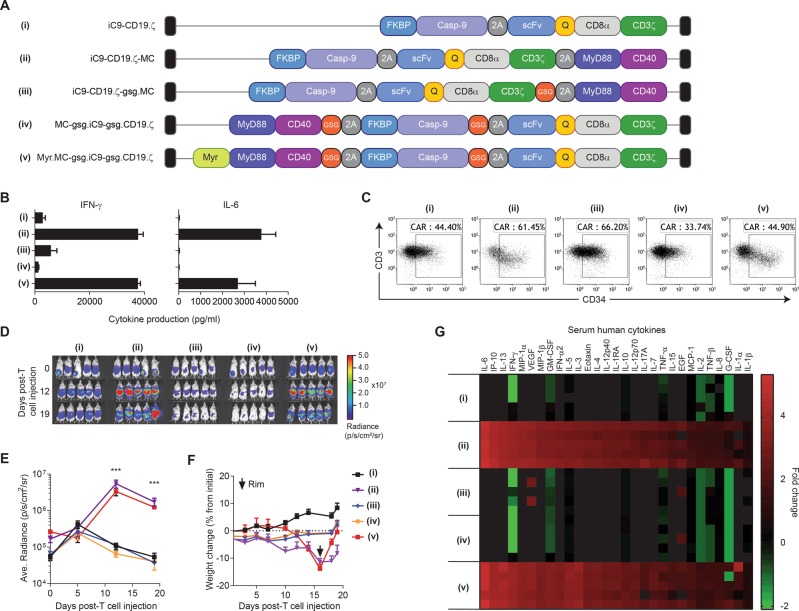Fig. 6.
CAR-MC basal activity required for T-cell expansion and cytokine-related toxicity. a Additional vectors were designed to better understand the contribution of CAR-MC basal effects on antitumor activity and cytokine-related toxicities in animal models. iC9-CD19.ζ (i) and iC9-CD19.ζ-MC (ii) were compared with constructs bearing high-efficiency 2A cleavage peptides (GSG-2A) (iii) or with MC moved to the first position to eliminate CAR-MC fusion pairing (iv). In addition, a vector was constructed with a myristoylated MC domain to enhance basal activity by tethering the signaling domain to the cell membrane (v). b Basal activity of CAR-modified T cells was assessed by measuring IFN-γ and IL-6 in the absence of an antigen. To measure CAR-T cell expansion, c T cells were co-transduced with a CAR vector and ONL and subsequently administered to CD19+ Raji-bearing mice, d, e where CAR-T cell expansion was measured on days 0 (post-T-cell injection), 12, and 19. f Toxicity from MC-based CAR-T cells was assessed by measuring weight loss. Groups exhibiting > 10% weight loss were treated with a single injection of rimiducid at 0.5 mg/kg. g Serum levels of cytokines and chemokines were assessed on day 7 post-CAR-T cell injection. Changes in cytokine/chemokine levels are represented as fold change from pre-CAR-T cell infusion samples

